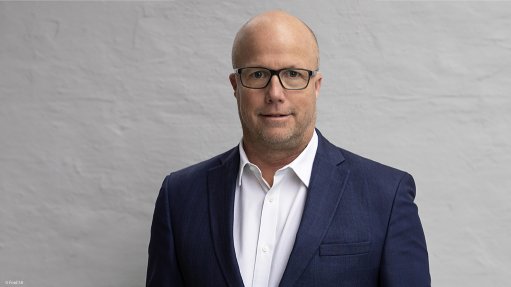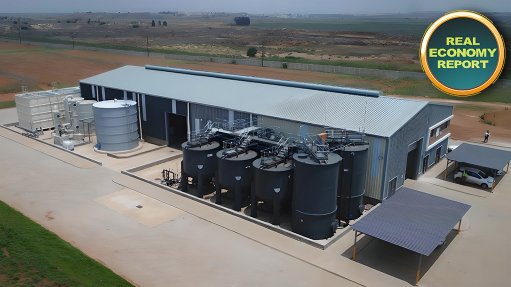Bizarre obesity premium
A couple of weeks back, I disclosed in this column how a nutritionist-designed diet and engaging in physical exercise daily had helped me shed tens of kilos, in the process taming my rampant blood cholesterol to within a healthy range. Sadly, owing to a lack of enlightenment, some still put a premium on obesity, despite its link to noncommunicable diseases, which, we are told, are responsible for about 70% of all deaths globally.
This lack of enlightenment sometimes manifests among the most unlikely groups of people. If a recent study conducted in Uganda is anything to go by, bank officials in that country, who should know better, fall within this category.
The study, conducted by an economics professor from the US-based Brown University, canvassed 230 loan officers at 146 banks and other credit-granting institutions in the Ugandan capital of Kampala about the criteria they use to approve or reject loan applications.
The researcher discovered that, owing to poor information gathering mechanisms, Ugandan loan officers often resort to whatever evidence they can find to help them make critical decisions. This includes ‘wealth signals’ such as the body weight of the potential borrower.
The study methodology entailed the economics professor submitting to the loan officers applications from fictionalised potential borrowers accompanied by photographs that were manipulated so that the borrowers appeared thin or fat. She discovered that the loan officers were more likely to rate the loan applicants as more creditworthy or more financially sound when the obese version of the photograph accompanied the application.
Following publication of the study’s results last month, the researcher told the New York Times: “The obesity premium is large, equivalent to the effect of a 60% increase in borrower self-reported income in the experiment or an additional asset like ownership of a car.”
But it’s not just the Ugandans who regard obesity as a sign of wealth or a cultural ideal. This is a belief shared by many Africans from across the continent. Research conducted in South Africa and published in the International Journal of Environmental Research and Public Health last October revealed that many of the participants believe that older men with pot bellies are wealthy, that overweight people generally are healthy and that their weight is attributable to their happiness in life.
Moreover, some of the participants – especially those with a level of education that informs them about the benefits of losing weight – stated that being obese was acceptable in their culture, even though they themselves might not embrace this belief.
Obesity has become an increasingly worrisome health risk on the continent, owing in part to the easy availability of cheap, highly processed food with little nutritional value that allows people to satisfy hunger without promoting overall health. A more sedentary lifestyle is also a contributory factor. Experts also finger the rapid pace of urbanisation on the continent, with urban planning in towns and cities not favouring walking or cycling. Instead, many of our urban centres are developing along the lines of car-centric American cities where pavements are often an afterthought outside affluent areas.
According to World Health Organisation (WHO) estimates, one in five adults in major African countries will be obese by the end of this year, with the prevalence among children and teenagers being one in ten.
Reflecting on these statistics, WHO Africa director Dr Matshidiso Moeti said: “Africa is facing a growing problem of obesity and overweight, and the trends are rising. This is a ticking time bomb. If unchecked, millions of people, including children, risk living shorter lives under the burden of poor health.”
But, as I said in my previous article, it is possible to tackle obesity – and by extension life-shortening noncommunicable diseases – through healthy eating and physical exercise.
Comments
Announcements
What's On
Subscribe to improve your user experience...
Option 1 (equivalent of R125 a month):
Receive a weekly copy of Creamer Media's Engineering News & Mining Weekly magazine
(print copy for those in South Africa and e-magazine for those outside of South Africa)
Receive daily email newsletters
Access to full search results
Access archive of magazine back copies
Access to Projects in Progress
Access to ONE Research Report of your choice in PDF format
Option 2 (equivalent of R375 a month):
All benefits from Option 1
PLUS
Access to Creamer Media's Research Channel Africa for ALL Research Reports, in PDF format, on various industrial and mining sectors
including Electricity; Water; Energy Transition; Hydrogen; Roads, Rail and Ports; Coal; Gold; Platinum; Battery Metals; etc.
Already a subscriber?
Forgotten your password?
Receive weekly copy of Creamer Media's Engineering News & Mining Weekly magazine (print copy for those in South Africa and e-magazine for those outside of South Africa)
➕
Recieve daily email newsletters
➕
Access to full search results
➕
Access archive of magazine back copies
➕
Access to Projects in Progress
➕
Access to ONE Research Report of your choice in PDF format
RESEARCH CHANNEL AFRICA
R4500 (equivalent of R375 a month)
SUBSCRIBEAll benefits from Option 1
➕
Access to Creamer Media's Research Channel Africa for ALL Research Reports on various industrial and mining sectors, in PDF format, including on:
Electricity
➕
Water
➕
Energy Transition
➕
Hydrogen
➕
Roads, Rail and Ports
➕
Coal
➕
Gold
➕
Platinum
➕
Battery Metals
➕
etc.
Receive all benefits from Option 1 or Option 2 delivered to numerous people at your company
➕
Multiple User names and Passwords for simultaneous log-ins
➕
Intranet integration access to all in your organisation
















